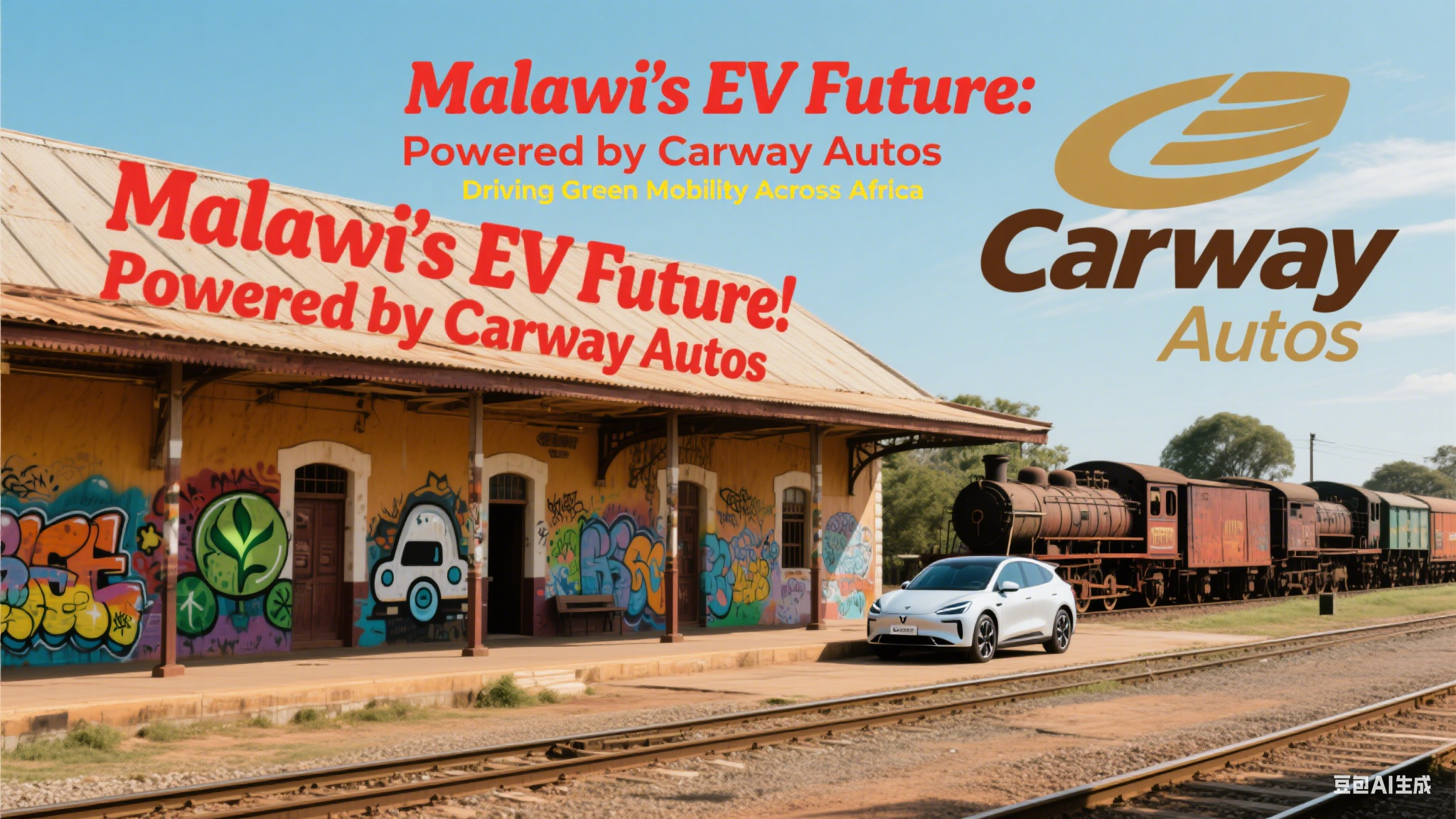
- Admin
- May 30, 2025
- Safety and Technology
Malawi’s Electric Vehicle Market: Emerging Opportunities and Carway Autos’ Bold Move
Malawi’s Electric Vehicle Market: Emerging Opportunities and Carway Autos’ Bold Move
Introduction: Is Malawi Ready for the EV Revolution?
As the world shifts gears towards sustainability, electric vehicles (EVs) are redefining the future of transport. From Norway to Kenya, the global drive for cleaner mobility is gaining traction, and now the spotlight turns to Malawi—a nation with immense potential but still at the beginning of its electric journey. Drawing lessons from Kenya’s experience, this article explores Malawi’s EV landscape and how Carway Autos is positioning itself as a first mover in this transformative sector.
Learning from Kenya: The Rise of EV Adoption
Kenya’s transition from fossil-fuel-powered transport to electric mobility offers a valuable playbook for neighboring countries. Companies like BasiGo and Roam (formerly Opibus) have demonstrated that:
-
Localized electric buses and motorcycles can thrive.
-
Partnerships between government and private sector are essential.
-
Infrastructure and affordability are key drivers.
Kenya’s government has supported this growth through tax incentives, renewable energy investments, and public-private collaboration. Malawi now faces a similar opportunity to chart its own course.
The Current State of EVs in Malawi: Early Signs of Promise
While Malawi’s EV market is nascent, several foundational elements suggest potential for growth:
-
Renewable Energy Base: Over 80% of Malawi’s electricity is generated from hydro and solar sources, offering a green power supply for EVs.
-
Urban Transport Demand: Cities like Lilongwe and Blantyre are experiencing growing transport needs, where clean and cost-efficient options could thrive.
-
Import Dependency: Like many African countries, Malawi relies heavily on imported fuel and vehicles—an EV shift could reduce foreign exchange pressure.
However, the country still faces notable hurdles: lack of EV infrastructure, high initial vehicle costs, limited consumer awareness, and regulatory gaps.
Carway Autos Enters the EV Space
In response to global and regional shifts, Carway Autos is preparing to launch its Electric Mobility Division in Malawi. Known for its strong presence in used vehicles and auto imports, Carway is now setting its sights on the future.
Carway’s EV Strategy Includes:
-
Introducing Affordable Electric Vehicles tailored for local conditions, including e-motorcycles and compact EVs.
-
Building Charging Points in partnership with shopping centers, petrol stations, and local authorities.
-
Pay-as-you-drive Financing Models to lower the barrier for adoption among public transport operators.
-
After-Sales Service & Parts for EVs, ensuring confidence among early adopters.
Carway’s entry mirrors the approach of Kenya’s pioneers like Roam and BasiGo, but customized for Malawi’s economic realities and infrastructure.
Opportunities for Growth
1. Two- and Three-Wheeler Market
Just as Kenya saw traction with electric motorcycles, Malawi has a vast opportunity in the two- and three-wheeler market. Electric boda-bodas and tuk-tuks can reduce transport costs and emissions in urban and peri-urban areas.
2. Solar Integration for Charging
With abundant sunlight, solar-powered EV charging stations can bypass grid limitations and accelerate adoption, particularly in rural zones.
3. Youth Employment & Green Jobs
EV assembly, battery maintenance, and solar charging tech open doors for thousands of skilled and semi-skilled jobs—aligning with Malawi’s youth employment needs.
Challenges to Address
Despite these opportunities, EV adoption in Malawi will require overcoming key challenges:
-
Cost: Initial prices are still high; incentives or lease-to-own models will be crucial.
-
Awareness: Public education campaigns will be needed to counter skepticism.
-
Policy Framework: Malawi lacks a formal EV policy. Regulatory clarity on standards, taxation, and imports is urgently required.
-
Charging Infrastructure: Investment in urban and intercity charging networks is essential to combat range anxiety.
Policy Recommendations and the Role of Government
To replicate Kenya’s success, the Malawian government should:
-
Cut Import Duties on fully electric vehicles and batteries.
-
Support Pilot Projects with local transport cooperatives or municipalities.
-
Enable Local Assembly with tax incentives and industrial support zones.
-
Incentivize Solar-Powered Charging to align with Malawi’s energy strategy.
The Road Ahead: A Green and Electric Future
Malawi’s journey toward electric mobility is just beginning. But with the right mix of policy, innovation, and public-private collaboration, the country can leapfrog into a more sustainable transport future. Carway Autos is leading the way, not just as a car dealer, but as a green mobility pioneer.
As EV technology matures and becomes more affordable, Malawi stands to benefit from:
-
Reduced fuel import bills,
-
Improved urban air quality,
-
New business and employment opportunities,
-
A cleaner environment for future generations.
Conclusion: The Time to Act is Now
The global shift toward electric mobility is irreversible—and Malawi must not be left behind. With companies like Carway Autos entering the EV arena and regional momentum growing, now is the time for Malawi to embrace the electric revolution. The path will not be without challenges, but the rewards are undeniable.
The future is electric. Malawi just needs to plug in. 🔌



Comments